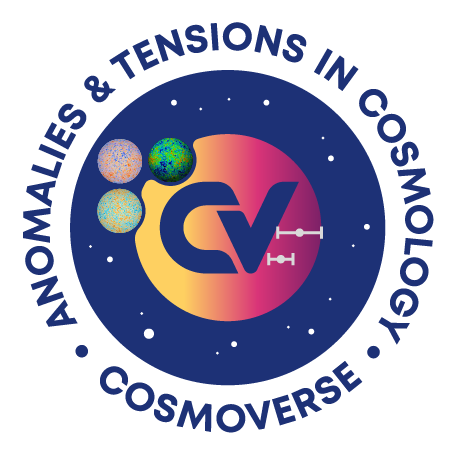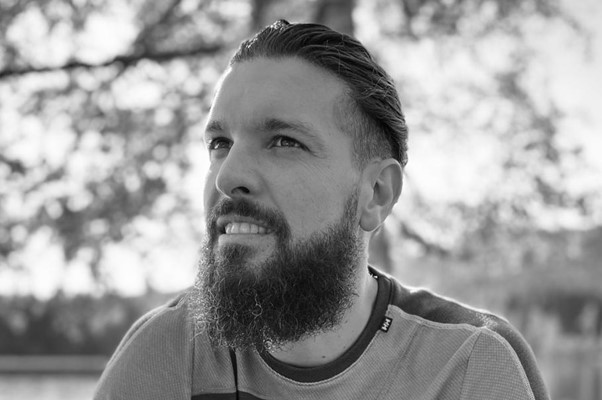What is your name, affiliation, academic position, and job title?
My name is Ismael Ferrero, Postdoc at the Institute of Theoretical Astrophysics at the University of Oslo.
What is your field of research and/or what project are you involved in?
During my PhD in Argentina, I worked on galaxy formation and evolution, mainly with hydrodynamic simulations. After a visit research at the Institut de Ciències de l’Educació (ICE) in Barcelona I started working on large-scale structure and cosmology. This stay drove me to my first postdoctoral position there. At ICE, I became part of several cosmological survey collaborations: Dark Energy Survey (DES), Dark Energy Spectroscopic Instrument (DESI), and Euclid. After this 2 year position, I moved to Oslo where I am currently residing. I have always worked within the cosmological simulation working groups of these collaborations. My main task is creating galaxy mocks that mimic the surveys’ data.
What are your research plans?
At the moment, I am mainly working for the Euclid Consortium. In July, the telescope was launched and soon, we will be able to use the first observed data. There is a lot of excitement for me to be a part of the work on the science within the collaboration and to be part of the earth-breaking results Euclid is going to reach within the field of cosmology.
How does CosmoVerse fit within those plans?
CosmoVerse has already provided me with many very beneficial experiences. The weekly seminars keep me updated with the latest research in the field and it allows me to meet more people working on the same problems I am trying to solve. In addition, CosmoVerse’s grant enabled me to conduct a short research visit. This research opportunity has allowed me to start working on a project, with collaborators from Spain, focused on galaxy mock production using machine learning techniques.
What are the most exciting open questions in your research area?
Working for Euclid Consortium, I cannot think about anything other than Euclid’s key questions. Is dark energy simply a cosmological constant, or is it a field that evolves dynamically with the expansion of the Universe? Is the apparent acceleration actually a manifestation of a breakdown of General Relativity on the largest scales?
What advances or new results are you excited about or looking forward to?
I am eagerly awaiting the results we will receive with the first release of Euclid data. It will already give us an idea of what cosmological parameters we will get with Euclid. Thus, this will contribute to resolving the current cosmological tension where CMB and low redshift analysis disagree.
What is your view on cosmic tensions? How does your work connect with this open question in the community?
It is my strong belief that we are heading in the right direction, in the sense that general relativity (GR) is the answer. I believe that we should focus on the astrophysical processes that we are not fully understanding. It is worthwhile to concentrate on this “small” aspect as it plays an important role at the end of the day as our measurements are very precise. However, we cannot turn a blind eye to modified gravity (MG) theories that may be the right answer. In that regard, I am focusing on producing galaxy mock catalogs based both on GR and on different MG models. With the upcoming enormous amount of observed data, this will be an invaluable resource for unbiased cosmological analysis.
What role do you think a community network like CosmoVerse can play in developing theoretical astroparticle physics and cosmology?
It will be necessary to have such a network for the role of creating a virtual space where scientists can exchange ideas and have valuable discussions with each other. The promotion of research visits as well as the conference participation are also important roles. Finally, the contribution to the organisation of workshops on the topic is the last role I can think of.
What do you like and dislike about being a scientist?
Finding answers to tough questions has always been one of my favourite things to do. I enjoy problem-solving in general. What I do not like about being a scientist, especially in the academic career, is how difficult it is to find a permanent position without sacrificing your personal life.
What’s your favourite food? Why?
Asado (BBQ). Why? Because I am Argentinian!
How do you relax after a hard day of work?
Spending time with my family and being in nature as much as possible.
What question would you have liked us to ask you, and what would you have answered?
The question: Is it worth spending hundreds of millions of Euros on a spatial mission like Euclid?
The answer: YES, definitely. It is not my answer that is important; it is the answer you can get from someone who is not a scientist and has no special knowledge of astronomy. The answer will almost certainly be NO from that person. And that is where the problem is. It is crucial that the scientific community improves the way it communicates science, involves the nonscientific population, and makes them interested in our projects so that we can turn that NO into a YES.

